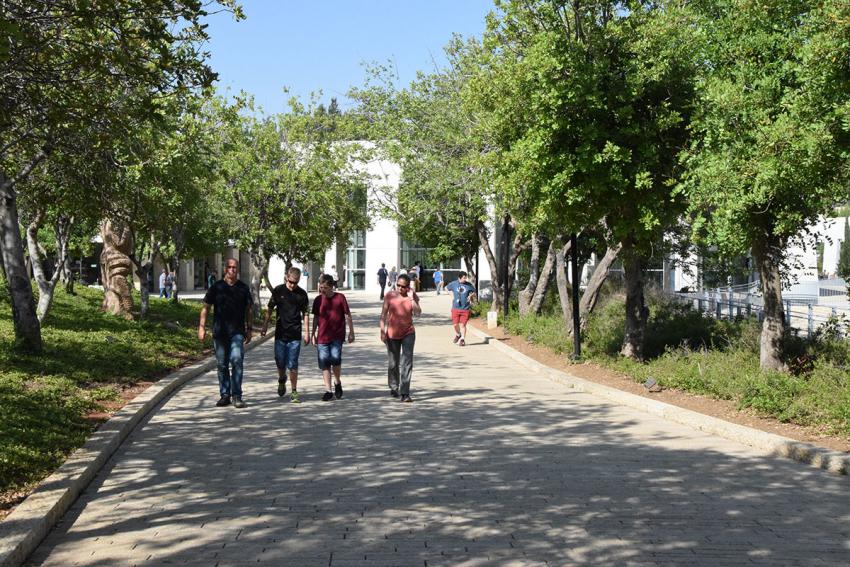Righteous Among The Nations
"In order to perpetrate the murder of six million Jews it was necessary to enlist the cooperation of different state institutions. Many of those involved were, so they claimed, professionals merely doing their job. Only a small minority mustered the necessary courage and honesty to recognize the real significance of what they were doing or what they were required to do and decided to defy their superiors and their orders and instructions."
"The Righteous Among the Nations, honored by Yad Vashem, are non-Jews who took great risks to save Jews during the Holocaust. Rescue took many forms and the Righteous came from different nations, religions and walks of life. What they had in common was that they protected their Jewish neighbors at a time when hostility and indifference prevailed."
Yad Vashem, Israel -- World Holocaust Remembrance Center
 |
| Avenue of the Righteous Among the Nations |
He was a young man of high principles, a man like few others, who was moved by the deathly plight he saw before him, in the country to which he had been dispatched as a diplomat to join the Swedish foreign mission in Hungary, 75 years ago. He came of a patrician family whose sense of right and wrong was acute, so much so, that despite the personal danger to himself, he acted compassionately and with determination to save as many Jewish lives as he could.
 |
| Raoul Wallenberg, European Pressphoto Agency |
"I want specific answers [of the Russians] to specific questions."
"He was a great man who wasn’t afraid to do the impossible. He deserves for us to know what happened to him."
"His story is unfinished — the mystery must be resolved. There are still so many closed doors, and we must have help in opening them.”
Wallenberg’s niece Marie von Dardel-Dupuy
On January 17, 1945, Raoul Wallenberg disappeared. A Swedish diplomat during World War II, barely into his 30s, when he arrived at the Swedish legation in Budapest in July of 1944, 440,000 Hungaran Jews had already been deported to Auschwitz during a frenetically disastrous period of ten weeks' duration. Raoul Wallenberg put into motion his personal dedication to saving the lives of Jews, slated for annihilation by the Nazi machinery of European Jewry's extermination.
During the last six months of that year, he distributed schutzpasses -- diplomatic passports whose possession was priceless for desperate Jews. It conferred upon each individual holding that precious document immunity protecting them from the fate that befell hundreds of thousands of Hungarian Jews, slated for death because they were Jews, their existence offensive to the hierarchy of the Third Reich whose propaganda had dehumanized them, enabling their arrest, deportation to death camps and final annihilation.
By means of establishing safe houses, giving diplomatic sanctuary to passport holders, this heroic figure saved the lives of 50,000 Jews. He rendered diplomatic immunity, protection from arrest, deportation to death camps and finally death to people with no prospects for salvation from the deadly grasp of a precision death machine like none other. Raoul Wallenberg embodied courage, conviction and compassion to the very depth of his noble soul.
When the Nazis advanced on Hungary's capital Budapest, threatening to blow up the city's ghetto and along with it the remaining Jews within it, he immediately placed the German generals on notice that he would see to it that they would be held accountable and justice would eventually prevail when they would be sentenced and convicted on charges of war crimes. At this time, Germany had already suffered grievous losses in their war of conquest, starting with their disastrous loss in the invasion of Soviet Russia.
German cities were being fire-bombed, food was becoming scarce, the German population, themselves steeped in Nazi ideology and complicit in the fate of Europe's Jews, began to question the reliability of the propaganda fed to them by their government, began to suspect that things were not as they were told, on the war front. Those Nazi generals may have suspected themselves that plans were going awry and there was potential for a final, complete loss and surrender. At which time they would be held liable for their crimes against humanity, a term not yet envisioned until the Nuremberg trials.
 |
| Raoul Wallenberg (Wikimedia Commons) |
But the threat worked and the generals stood down and in the process another 70,000 Jews were rescued from certain death. When the Soviets entered Hungary to liberate it from the Germans on January 17, 1945, for reasons known only to themselves and never shared with the rest of the world, despite efforts to find and free Raoul Wallenberg, he was arrested that day, and taken to Russia where he was imprisoned in the Gulag.
Under questioning, Soviet authorities contended he had died in 1947 of a heart attack, then that he had been murdered, when in fact, reports of others having seen and spoken with him surfaced, negating those responses. In 1985, a U.S. Federal Court found evidence they considered "incontrovertible" that Raoul Wallenberg was alive in 1947, "compelling" that he was alive in the 1960s, and "credible" that he remained alive into the 1980s.
To this day, however, the mystery of what had become of this singular man remains unknown. In 1989, his passport, personal belongings and a copy of a prisoner record card were turned over to the family.

Labels: Anniversary, Holocaust, Raoul Wallenberg, Rescue, World War II
0 Comments:
Post a Comment
<< Home